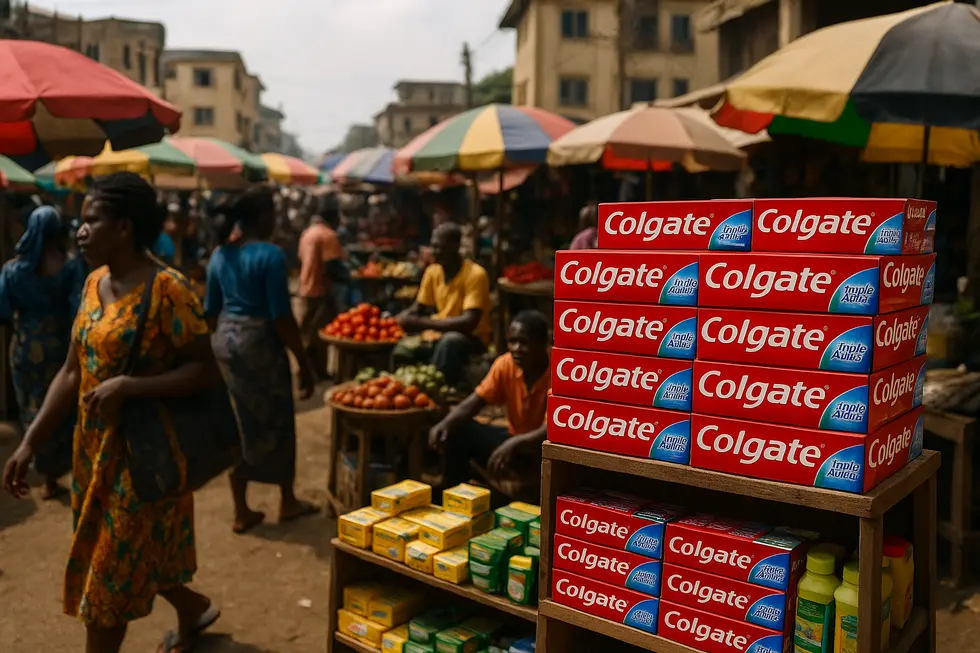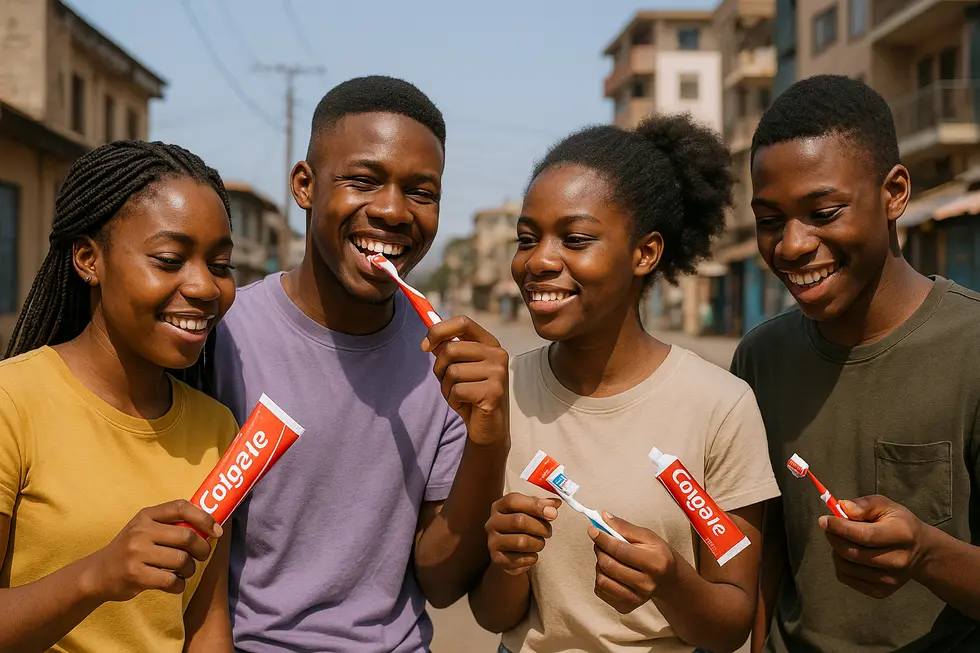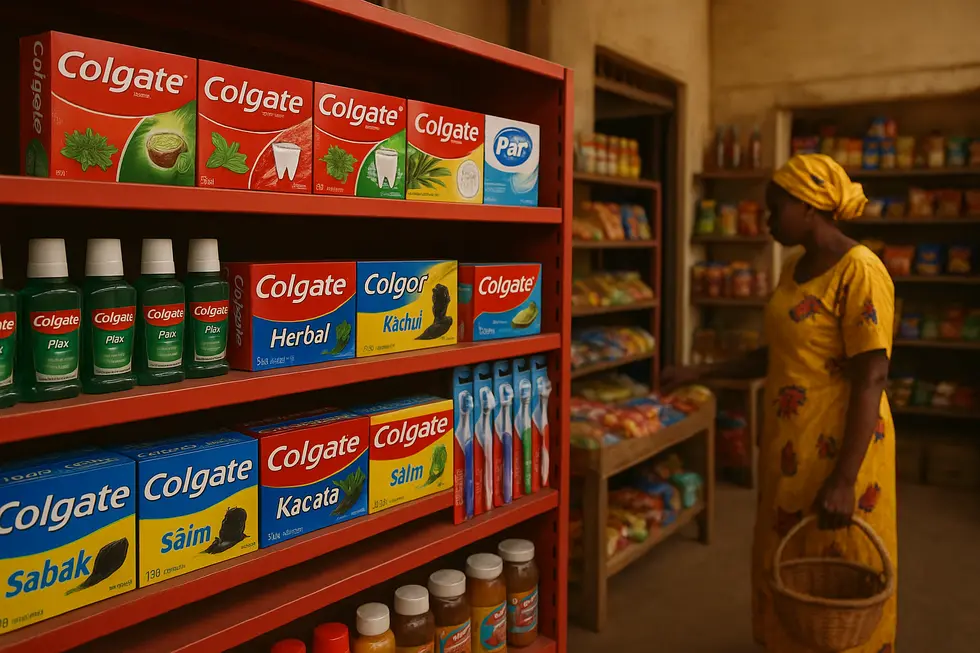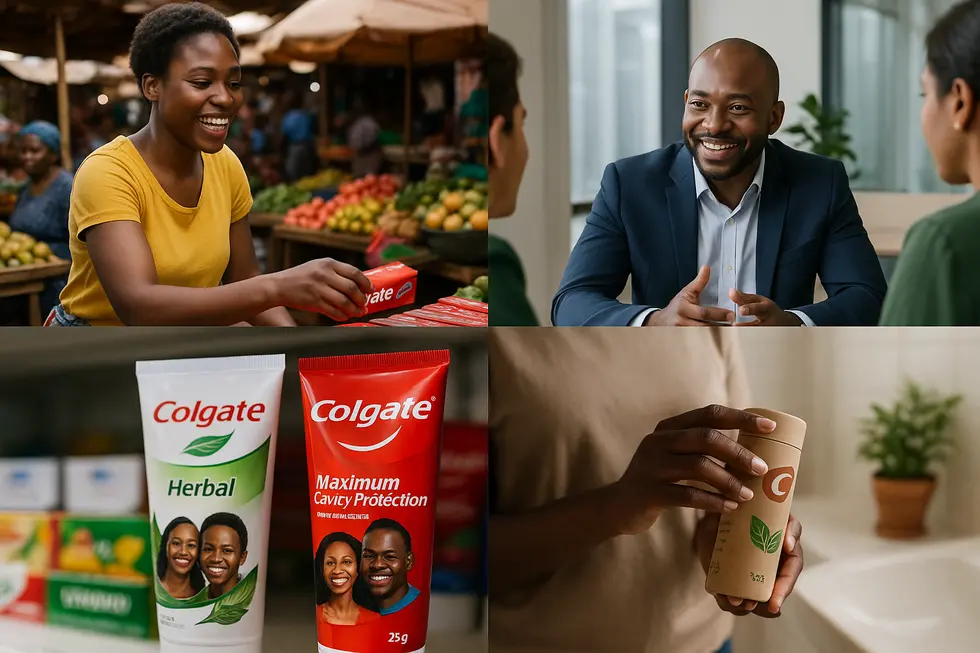No products in the cart.
Colgate Dental Care, Personal Care News
Unlocking Opportunities: Colgate’s Demand in Africa’s Evolving Market
Colgate-Palmolive’s presence in Africa is driven by a unique mix of opportunities and challenges. With Africa’s rapidly growing population and a burgeoning middle class, the market for personal care products, especially oral care, is on the rise. Despite economic instabilities like inflation and currency fluctuations, strategic leadership and localized products offer Colgate avenues for expansion. This article delves into the economic and demographic factors influencing demand, explores leadership strategies being implemented to capture market share, and examines how sustainability and health trends are steering consumer preferences. Join us as we dissect these dynamics and their implications for wholesale importers in Africa.
Table of Contents
The Economic Dynamics Steering Colgate’s Demand in Africa

Colgate-Palmolive‘s foothold in the African market is intricately linked to the continent’s fluctuating economic landscape. Rising disposable incomes, particularly in urbanized areas, initially bolster demand for personal care products. However, this surge can be swiftly undermined by economic turbulence, such as inflation or currency devaluation, which reduces disposable income and shifts consumer focus toward essential needs. Educational initiatives are pivotal, as increasing awareness about oral care through both governmental and private efforts widens Colgate’s potential market base. Yet, communication barriers due to low literacy can impede progress. Moreover, Colgate faces stiff competition from local brands that cater to regional preferences with affordable alternatives. This price sensitivity, heightened during economic downturns, necessitates strategic innovation from Colgate to differentiate its offerings. Also, tariffs and currency fluctuations can escalate production costs, impacting pricing strategies. Despite these challenges, African consumers are growing more conscious of social responsibility, appreciating Colgate’s commitment to sustainable practices. These diverse economic elements create a complex but promising tapestry for Colgate’s expansion in Africa. Investing.com Analysis
Harnessing Africa’s Demographic Wave: Opportunities for Colgate

Africa’s striking demographic shift presents unique potential for consumer goods giants like Colgate. By 2050, with over 60% of its projected 2.5 billion people under the age of 25, Africa promises a youthful, dynamic market landscape. These young consumers are expected to drive economic growth and increase the demand for everyday essentials, including oral care products. African millennials, who number around 278 million, command significant purchasing power, directing over $845 billion annually to household needs.
Despite economic hurdles like inflation and currency fluctuations, the continent is witnessing growth spurts. Several nations benefit from economic reforms, robust exports, and a burgeoning youth-driven economy. This sets a favorable stage for heightened consumer goods demand.
Colgate’s strategic response lies in tailoring products to appeal to these vibrant demographics. Emphasizing affordability, sustainability, and digital engagement are key to capturing their attention and loyalty. Moreover, partnering with local businesses could enhance distribution and navigate economic challenges, positioning Colgate well within Africa’s evolving consumer market landscape.
Leadership Dynamics Powering Colgate’s Market Expansion in Africa

Colgate-Palmolive’s strategic leadership is pivotal in addressing the unique challenges of the African market while seizing its potential. With recent appointments, like Panagiotis Tsourapas as Chief Operating Officer overseeing Europe, Asia Pacific, Africa, and beyond, Colgate is reinforcing its commitment to growth in diverse regions. Effective leadership in these areas is not just about understanding consumer behaviors but also about navigating economic variances like inflation and currency fluctuations, which are prevalent in African markets.
Through localized strategies, such as product adaptation and marketing innovation specifically tailored for the African consumer, Colgate aims to deepen its market penetration. This involves adapting successful strategies used in other regions, such as digital engagement observed in India’s rural markets, which can be a roadmap for tapping into Africa’s burgeoning middle class. Strategic leadership enables the agility needed to manage these complexities, all while promoting sustainability—a growing concern among Africa’s youthful demographics. By coupling insightful leadership with innovative approaches, Colgate is poised to strengthen its foothold across the continent. For more insights into the company’s recent leadership changes, visit Colgate-Palmolive Executive Leadership Appointments.
Navigating the Economic and Market Hurdles in Africa

Colgate-Palmolive faces a myriad of challenges in boosting its demand across Africa, each deeply intertwined with economic and market dynamics unique to the region. Macroeconomic fluctuations pose a significant hurdle, with inflation and currency volatility effectively reducing consumer spending power, thus dampening the purchase of non-essential items like oral care products. This scenario is exacerbated by increased input costs due to global supply chain disruptions and tariffs, which lead to higher product prices and possibly diminished demand. Source
Additionally, category growth in consumer staples like oral care has experienced a slowdown, both globally and regionally. This stagnation necessitates innovative approaches and marketing tailored to diverse preferences and budgetary constraints in Africa. Consumer price sensitivity further complicates the landscape, as economic pressures drive many towards affordable alternatives, heightening competition for Colgate. In this environment, localization of products and strategic marketing become essential for maintaining market share.
Moreover, the urban vs rural market dynamics require a balanced focus. While urban areas generally have higher purchasing power, rural populations offer untapped potential, demanding a targeted expansion strategy that addresses both segments effectively.
Adapting to Diversity: Colgate’s Localization Strategies in Africa

To truly penetrate the African market, Colgate-Palmolive’s approach hinges on effective localization strategies that acknowledge the continent’s vast economic and cultural diversity. Drawing lessons from its successes in other emerging markets like India, Colgate understands the importance of crafting products that resonate with local preferences and needs. This means not only adapting flavors and product formulations but also embracing the ethos of sustainability—an increasing priority among the growing African middle class.
In Africa, where markets remain relatively underdeveloped compared to the West, such localized efforts could be transformative. By focusing on health-conscious products and sustainable practices, Colgate can cater to the new generation of eco-aware consumers. This strategy is imperative given the challenges posed by currency fluctuations and competition from established local brands.
Successfully navigating these complexities requires Colgate to blend global brand power with local sensibilities, making its products indispensable across varied markets in Africa. As they fine-tune their African operations, it is crucial to draw insights from their global experiences, creating an adaptive framework for sustained growth on the continent.
Eco-Conscious Innovations and Health Awareness Fuel Colgate’s Growth in Africa

Colgate-Palmolive’s strategy in Africa is increasingly intertwined with global and regional trends focusing on sustainability and health. As African consumers become more environmentally aware, Colgate’s commitment to reduce its environmental footprint strikes a chord. By aiming to make all packaging recyclable, reusable, or compostable by 2025, the company not only meets international standards but also aligns with the eco-conscious desires of African consumers who favor products with minimal environmental impact. For more on Colgate’s environmental goals, consult Colgate Sustainability Goals.
Health consciousness also significantly drives demand, with a growing awareness of the link between oral hygiene and overall health. Colgate capitalizes on this trend by investing in product innovations that address specific oral health needs, emphasizing safety and efficacy. Their digital initiatives facilitate consumer education, promoting proper product usage and responsible disposal. Additionally, Colgate’s “Bright Smiles, Bright Futures” program underscores their commitment to social responsibility, further building trust and reinforcing their market position as a leader championing well-being and community development across Africa.
Final thoughts
Colgate’s potential in Africa is substantial, driven by dynamic economic, demographic, and cultural factors. Strategic leadership, effective localization, and a keen eye on sustainability are key to its success. Despite challenges like economic fluctuations, Colgate’s informed strategies position it well to capitalize on growing demand. Wholesale importers have an interesting landscape to navigate, with collaborations promising mutual growth. As Africa’s oral care market expands, embracing Colgate could mean significant opportunities.
Expand with Colgate in Africa? 👉 Contact us now for sourcing options
About us
Asia Grocery Co., Ltd is a trusted distributor, wholesaler, and exporter of fast-moving consumer goods (FMCG) from Vietnam, backed by over 20 years of expertise. We deliver authentic products from globally recognized brands such as P&G, Unilever, Redbull, Coca-Cola, Pepsi, Asiadeli, along with traditional and culturally significant Asian products, catering to customers worldwide with a special focus on Vietnamese and Asian communities abroad.


